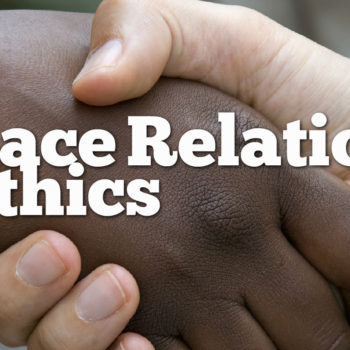Once again, I am afraid I must start with a disclaimer. The mess that the State of Virginia finds itself in, is not about politics. I will not identify the political party nor even name, names. Rather, this monumental scandal is about an environment of unethical behavior, low expectations and choices (some made long ago) leading to embarrassing consequences.
Unethical pot of soup in Virginia politics, the scandals again prove that the so-called ethics committees and ethical standards applied to our politicians are inadequate and highly lacking in accountability.
Three Politicians
At the writing of this blog, the State of Virginia has three scandals simultaneously occurring. It was discovered that the lieutenant governor, who is the most recent scandal, has been accused of rape. The charges were made while he undergoing confirmation. He adamantly denies the accusation, but his accuser is equally forceful in her convictions down to graphic details of the event.

Racial Bias
A few days before the state attorney general admitted that while at a college party in 1980, he put on blackface, an Afro wig and brown makeup for a party where he went as a rapper. He did so as an add-on to the scandal involving the Virginia governor who allegedly appeared in blackface next to a friend dressed as a Klan member who was holding a hangman’s noose. It is important for this discussion to say that the governor was not in college when the yearbook photo was taken, but in medical school.
As to the basic, raw seriousness of the crimes, the rape allegation is obviously the most troubling in terms of physical and emotional abuse, however, to dismiss the blackface incidents with their institutionalized racial overtones is wrong. They are not “nothing” issues. They talk to deep, long-standing problems.
The rape accusation is obviously a punishable crime and if proven to be true, could result in prison time and certainly would block him from holding office. Those who might gloss over this charge either for political expediency or because it was “a long time ago,” miss the obvious point of an ethical character. Even if this act of violence took place ten or more years ago, what does it say about the person who committed the crime and chose to omit the details?
As to the two politicians who wore blackface, it is more than youthful indiscretion. In the first case I mentioned, the costume was worn in 1980, not 1930 or 1960 when segregation ruled Virginia. While civil rights legislation had been long before enacted, the fact that the young men of the fraternity still thought racial mockery was acceptable talks to the issue of character. The man who admitted to this was the state attorney general, the person charged with handing out justice. There is a question of bias here. Is justice handed out equally?
In terms of the governor, he chose to wear blackface and stand next to a Klansman with a noose when graduating from medical school. He was no longer a naïve underclassman but as a fourth-year medical student, at least in his mid-20s. At what point was this doctor (who graduated in 1984), be capable of differentiating between racism and childish behavior? As a physician, not yet a politician, was he able to dispense medical treatment without bias? Obviously, as governor, he had to make it up the ranks of other elected offices, was there no ethical screening prior to him becoming governor in 2014? It is difficult to believe.
Caught before Admission
In the three scandals shown, there is a commonality. To run for any public office is an opportunity that is often borne of ego and ambition as much as a desire for public service. All three men chose to hide their various indiscretions and attitudes rather than admitting to various ethics committees that they may have done something wrong in the past.
There is a consequence of choices, especially bad choices. In today’s world of digitized information, racial awareness and clearly, sexual assault, issues of these types will come to the surface. What may have been seen as harmless fun and games in 1980 or 1984, even among students, is not acceptable in 2019. Ethical training and ethical awareness should have captured these indiscretions decades before.
These men will have their defenders to be certain, but ethically what will they gain in that defense? Will they support an ambivalence towards racism? Rape culture? Sexual violence? Unethical Pot of Soup in Virginia Politics – choices have consequences and ethical training can create an awareness of that fact.


